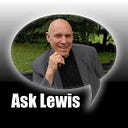Member-only story
The Enlightened Capitalist: Every Business Tells A Story
Using EEPPSA (efficiency, effectiveness, precision, productivity, and self-awareness) to give your business's story a happy ending.
It is likely that human beings are hard-wired to create loving relationships. Creating, retelling, and sharing stories with other humans is one way of creating meaning and making connections with others. Every business or commercial enterprise also has a story and a history as well that is retold and shared to connect to employees and customers.
History is not truth, nor is it even based on facts. History is just a large collection of stories. Even where the facts are verifiable, you never get all the facts; thus, the story you are being told is a selective presentation. There are probably other facts in the very same story that you are not aware of that would change the entire flavor, scope, and purpose of what is being told. This is one of the reasons why so many cultures have less concern with historical accuracy and a greater concern for the relevance of the story, for the story is an expression and reflection of the ever-unfolding community identity.
